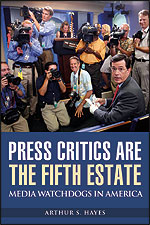
Hillary Clinton in 2013. Photo (cc) by Steve Rhodes. Some rights reserved.
The email controversy has taken such a toll on Hillary Clinton’s presidential candidacy that it’s dragged her below 50 percent among Democrats, The Washington Post reports. But the new Post-ABC News poll from which that conclusion is drawn shows that other, more mundane factors may have more to do with her sagging numbers.
The poll shows that the percentage of Democratic-leaning voters who say they back Clinton has fallen from 63 percent in mid-July to just 42 percent last week — a 21-point drop. Sounds like trouble, especially when you look at numbers showing that a rising percentage of respondents believe Clinton is untrustworthy.
“Hillary Rodham Clinton has lost significant ground over the past two months, as she has struggled to manage the controversy over her use of a private e-mail server while secretary of state,” write the Post’s Dan Balz and Scott Clement.
But is that the most important explanation for her declining numbers? My guess is no.
First, Bernie Sanders’ support has risen from 14 percent to 24 percent, a phenomenon that strikes me as entirely independent of any concerns about Clinton’s emails. Sanders is experiencing the sort of surge that is not uncommon for the most clearly progressive candidate in the months leading up to the primaries — that is, the candidate who best represents “the Democratic wing of the Democratic Party,” as Howard Dean once put it. Sanders is actually leading Clinton in Iowa and New Hampshire, according to some polls. We’ll see whether it lasts.
Second, a Joe Biden candidacy wasn’t on anyone’s radar in July, yet the vice president attracted 12 percent of respondents anyway. Last week, with Biden looking like he might jump in, he rose to 21 percent, just behind Sanders. Again, I don’t think it makes sense to assume the emails are mainly responsible for Biden’s rise, although I’m sure he looks better to some voters as a result of Clinton’s struggles. Mainly, though, Biden enjoys an enormous reservoir of goodwill. All it took was an indication that he might actually run for his numbers to go up.
And if you remove Biden from the equation, Clinton leads Sanders by a margin of 56 percent to 28 percent. With Biden seemingly signaling to Stephen Colbert that he won’t take the plunge, that seems like a truer picture of the state of the Democratic race.
Clinton may or may not be in trouble with the electorate as a whole, but there’s little indication that Democrats are inclined to reject her.


 I’ve got an
I’ve got an